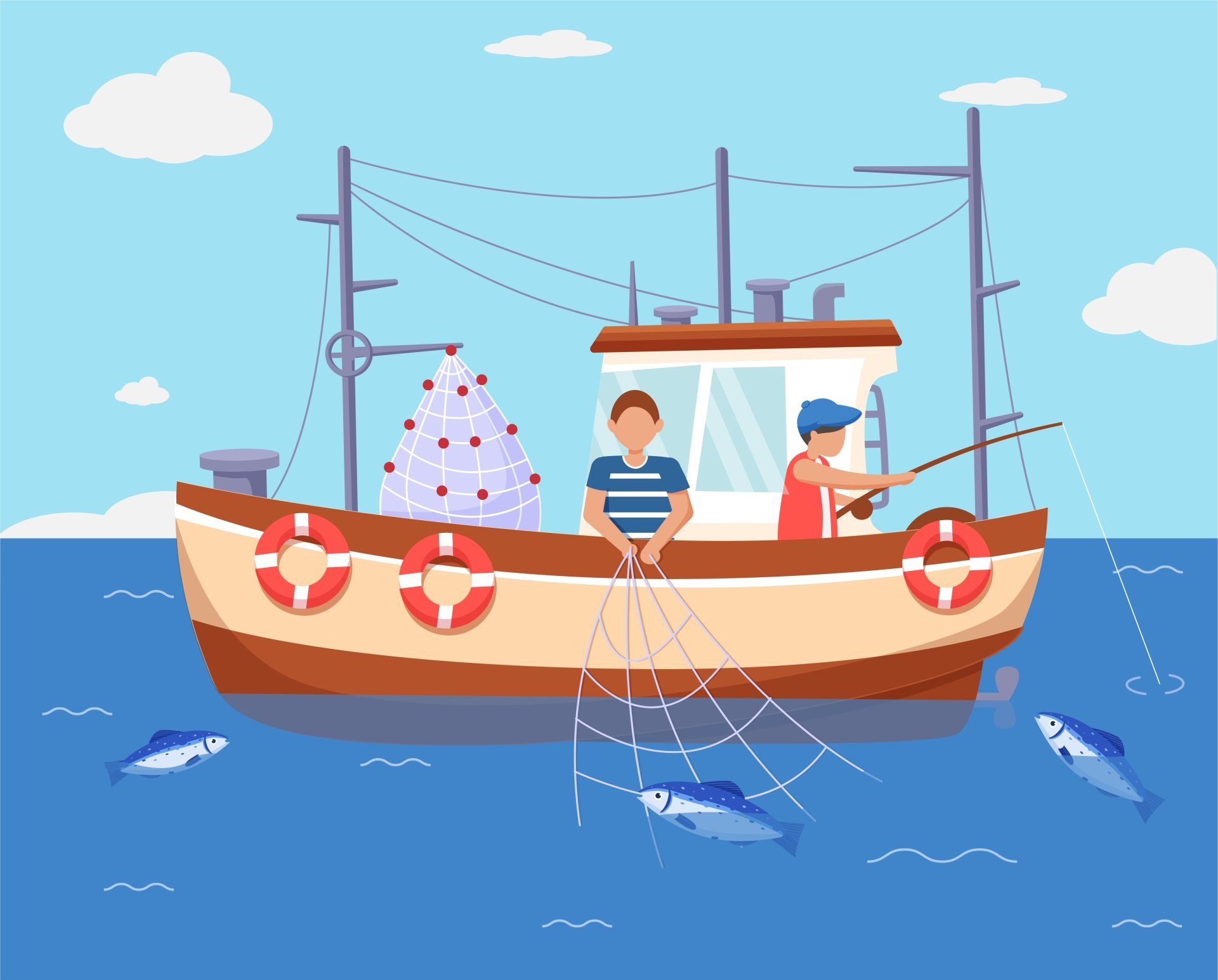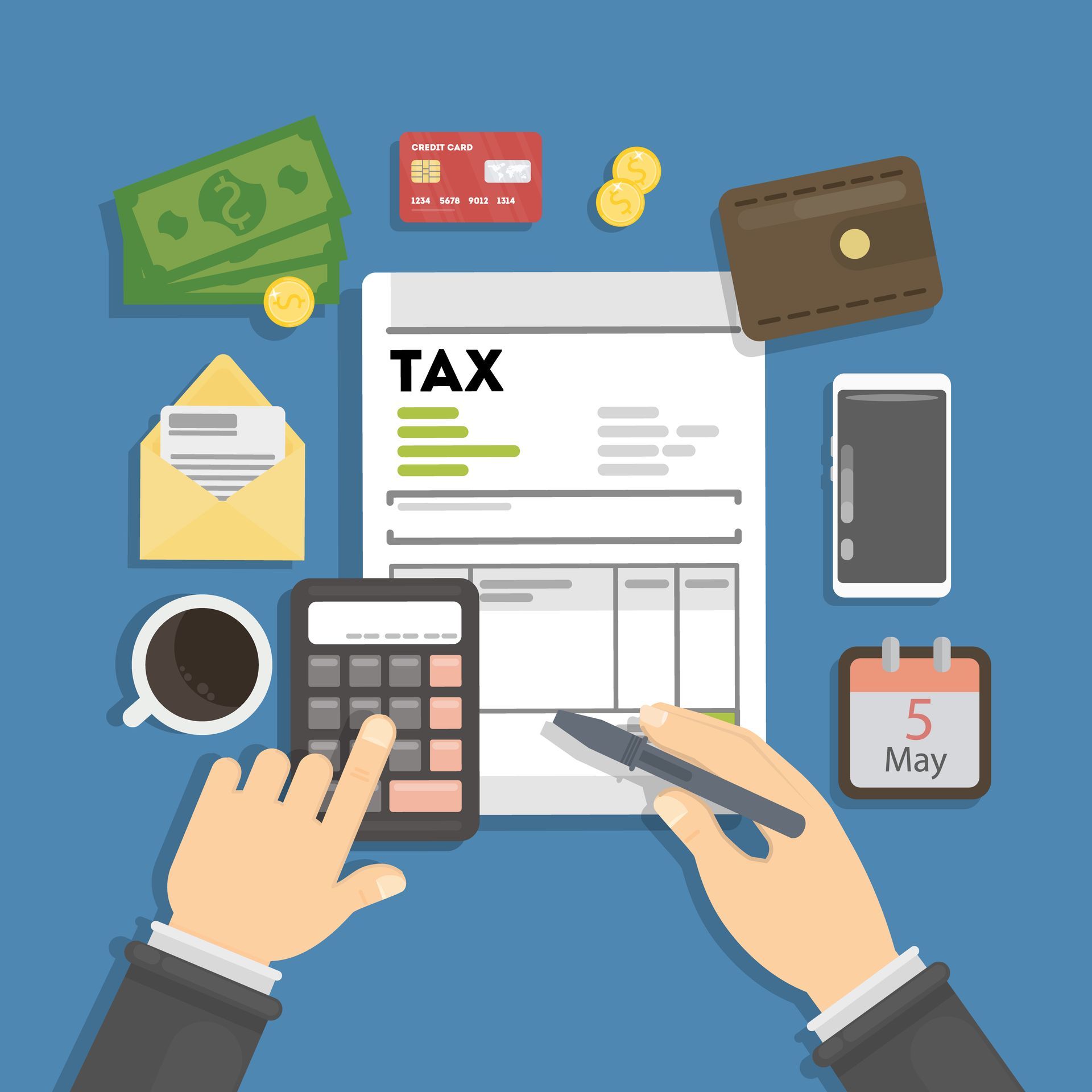Tax Tips for Commercial Fishermen
Many commercial fishermen, especially early in their careers, do not pay attention to taxes. They don’t have an accountant. They don’t pay estimated taxes from their earnings and delay getting their tax returns filed. Often they end up always a year or more behind. Or they don’t do anything and end up owing tens of thousands of dollars to the IRS and the Oregon Department of Revenue (ODR) for multiple years. We help fishermen get their taxes under control. We do this by working with accountants to get missing tax returns filed, getting our clients started on making the correct estimated tax payments and getting tax collections for older years under control with payment arrangements or in some cases settlements with the IRS or ODR.
Choosing the Right Entity for Your Commercial Fishing Business
This question is just as important to the owners of a commercial fishing boat as it is to the individuals who work on it and get paid a percentage of the catch for their work. And we recommend that you talk to an accountant about the tax advantages of operating as an LLC. With this kind of business entity you can choose how you want it to be taxes.
These tax advantages are pretty simple. With an LLC taxed as an S-Corp you can get income from fishing without paying the 15% self-employment tax. This savings isn’t available for all of your income. Your LLC has to pay you a salary for some of your income. This part of your income is treated as wages and has to be subject to tax withholdings just like any wages are. But you can take a healthy portion of your income without paying the self-employment tax.
This money goes to make a contribution on your behalf to the social security system. Therefore, of course, the disadvantage is that since you aren’t putting that money into the social security system you will get much less in social security when you retire.
So this only really makes sense if you are able to put some or all of that money into a retirement account. Most fishermen are not able to do so and end up spending it instead. So they are leaving themselves short when they are ready to start collecting their social security.
There are also advantages to setting up an LLC if you owe a lot of back taxes and are facing collection efforts from the IRS or the ODR. Specifically, the taxing agencies will have a harder time seizing income or bank accounts in the name of an LLC to collect taxes that you owe personally.

Sole Proprietorship
Most commercial fishermen operate as a sole proprietorship. The advantage is that it is simple and straightforward. Their income goes into their personal account bank and they pay their bills, both for fishing and household expenses from that account. At the end of the year, they gather up their bank statements and their receipts and take them to the accountant to have their taxes prepared. This works fine for people who don’t owe a lot of back taxes but leaves them vulnerable to collections by the IRS or the ODR if they do.
Limited Liability Company (LLC)
If you owe a lot of old taxes, the advantages of setting up an LLC is that your percentage for working on a fishing boat doesn’t come to you personally but rather to your LLC. It has a separate taxpayer id number and a separate bank account. So the LLC’s income and bank account can’t be garnished for your individual taxes and so your earnings aren’t subject to levy or garnishment until they are paid to you personally.
The disadvantages are that you now have two bank accounts and two tax returns. You have to file a lot more paperwork to set up and maintain the LLC as a separate legal entity. It is much simpler to operate as a sole proprietorship with just one tax return, your personal income tax return, where your income is all reported.
S-Corp
There really is no good reason to operate as an S-Corp since an LLC can opt to be taxed as an S-Corp. This means the business income and expenses are passed through to you as the owner of the company. An S-Corp has all of the other disadvantages of an LLC as it also requires a separate tax return and a separate bank account. But it has the added disadvantage of a corporation in that you must maintain certain corporate formalities in order to retain your corporate status.
Managing Your Gross Income

The most important thing for a commercial fisherman working on a fishing boat for a share of the catch is to pay an appropriate amount of estimated taxes from each check to the IRS and the ODR. Commercial fishermen are given special rules for estimated tax payments but in many cases, these lead to more problems.
Specifically, fishermen have extra time to make their estimated tax payments. Other self-employed people or small business owners are supposed to make 4 estimated tax payments per year for a total of at least 80% of the previous year's taxes. But fishermen can either pay 80% by January 15th and file their taxes with payment of the balance owing by April 15th or they can simply file and pay in full by March 15th and skip paying estimated taxes altogether.
But this leaves fishermen trying to save the money for taxes all year long so that they have enough on January 15th or March 15th to meet these requirements. And for many people, there are just too many other things to spend the money on, like vehicle payments or living expenses, and so when the time comes to pay the taxes, the money isn’t there. And this leads to fishermen not filing their taxes when due because they don’t have the money to pay them.
-Refer to this page for context about the above point.
Tax Highlights for Commercial Fishermen
Commercial fishermen should be aware of certain tax advantages that have been created just for them as well as the usual deductions and tax considerations that are available to any small business person.
For additional context and information you can reference this page for all information in this section.
Capital Construction Fund
Many fishermen working on someone else’s boat for a share of the catch dream of owning their own boat. The law creating the Capital Construction Fund program was set up just for them. Under it, you can start to save to buy your own boat with tax-deductible contributions to a Capital Construction Fund at an approved bank. There are regulations on how much you can deduct and how soon you have to use it but it is a real opportunity if you are not behind on your income taxes and want to save to buy your own boat. Many commercial fishermen have benefited from it.
Out of Town Expenses
A fisherman or boat owner should only use an accountant with experience preparing returns for commercial fishermen. There are many deductions for out of town expenses that commercial fishermen can take advantage of. These include gear and supplies, out-of-port meals, provisions, telephone, internet expenses, and several kinds of travel expenses; such as airfare, meals, and lodging expenses. An accountant experienced with returns for fishermen will make sure you are getting all the deductions you are entitled to.
Estimated Tax Payments

There are two special methods for commercial fishermen that establish the dates and the minimum amounts a fisherman must pay their taxes.
You either pay an estimated tax of 80% of the previous year’s tax liability by January 15th following the end of the tax year. But you must file your return by April 15th and pay the balance of your taxes with your return.
Or you can skip paying estimated taxes altogether and just file and pay in full by March 15th following the end of the tax year. On paper, the second method is better because you just pay what you owe when you file your return. In effect, this means that commercial fishermen do not have to pay estimated taxes at all.
But this is very difficult to do. It means that you have to save up money all year long and you have to get your paperwork to your accountant right away after the end of the tax year so that the return can be completed by the March 15th deadline.
You can also just pay the usual estimated taxes during the tax year, just like for any business, which is 20% of the previous year’s taxes due on each of these dates: April 15th, June 15th, September 15th, and January 15th of the following year. So this way you at least are getting the money to the IRS and the ODR and aren’t trying to save it up all year.
If you owe back taxes or have had trouble making estimated taxes before, you should consider another method using your average tax rate for the previous year and then paying that amount each time you get paid. To do this, look at your previous year’s returns. Divide the total taxes by the gross income and then use that percentage to determine how much to pay to the IRS and the ODR each time you get a check.
For example, if you made $250,000.00 in 2021, before any taxes or expenses, and owed $12,500.00 to Oregon and $25,000.00 to the IRS, then the ratio would be 10% for the IRS and 5% for the state. Then, if you got a check for $30,000.00 you would immediately send off $3,000.00 to the IRS and $1,500.00 to Oregon. The advantage is that the money is out of harm’s way, i.e. it is not going to get levied or garnished for old taxes and you aren’t tempted to spend it on something else.
Be sure to print off the estimated tax vouchers from the IRS and ODR websites to send with your payments so that they are applied to the current tax year. Here are the links:
https://www.irs.gov/pub/irs-pdf/f1040es.pdf
https://www.oregon.gov/dor/forms/FormsPubs/form-or-40-v_101-172.pdf
Tax Issues Commercial Fishermen Should Look Out For
If you own your fishing boat, you can usually depreciate what you paid for it over 10 years. Fishing tenders or processing boats as well as gear with a useful life longer than a year may qualify for a 7-year depreciation.
Gear that lasts one season or less can usually be deducted as a cost of business.
But when you sell your boat there may be depreciation recapture if the sale prices is more than what you paid for it less the depreciation you wrote off each year.
Permits and leases can usually be written off over their time length.
Make sure that you maintain complete business records and keep all of your receipts. It is not enough just to have a check register or bank statements. You must also have the receipts to back them up.
For additional context and information, you can reference this page for all information in this section.
Capital Expenses, Gains, and Losses
When commercial fishermen purchase equipment or other assets that have a useful life longer than one year, it usually can’t be counted as a deductible business expense, like fuel, ice, provisions or supplies can be. For assets like the fishing boat that have a useful life measured in years, the commercial boat owner can depreciate the value of the boat and reduce their income taxes each year. However, this will lower the cost basis which means that on the sale of the property, the difference between the sale price and the basis less depreciation, represents a capital gain.
The most important thing is to be sure that you have an accountant with experience doing returns for fishermen or for the owners of fishing boats. They will be up-to-date on the latest rules regarding all of these issues and will make sure that you get the deductions that you are entitled to and that you get full advantage of all of the rules for depreciation and capital gains for fishermen and boat owners.
Get Assistance from an Attorney if you owe Back Taxes

If you owe a lot of back taxes, it is just as crucial that you get the assistance of an attorney experienced in helping commercial fishermen. An experienced tax attorney can help you deal with the IRS and the ODR, advise you as to whether you might qualify for a settlement, and help you get set up on a payment agreement if you don’t
An experienced attorney can also advise you on your options in bankruptcy and whether some of your old taxes could be discharged. Dealing with the IRS and the ODR is complicated and time consuming. But if you want to get your tax situation under control, the only way to do it is to get the help of an attorney who has been through the whale process before.
Why do so many commercial fishermen turn to Behrends & Carusone to help them deal with old income taxes? It is because so many friends, family members, other commercial fishermen, accountants, or attorneys have referred them to us! We have helped so many commercial fishermen in Oregon get offers in compromise approved, tax liens released, payment plans set up and, yes, millions of dollars in old income taxes discharged in bankruptcy.
We work with many accountants who send their clients to us when they finally want to resolve their old tax problems and put the collection notices and threatening letters behind them. They send us their commercial fishermen clients who finally want to get their tax debts under control.
Before you pay a national tax resolution service thousands of dollars, check with us for a $250.00 appointment to find out what kind of tax relief might be available to you. Can we help you with the old taxes you owe the IRS or the Oregon Department of Revenue? Send us a message or set up a phone appointment to find out! If you are a commercial fisherman who owes back taxes, call us at 1-800-391-7472. You'll be glad that you did!









Share On: